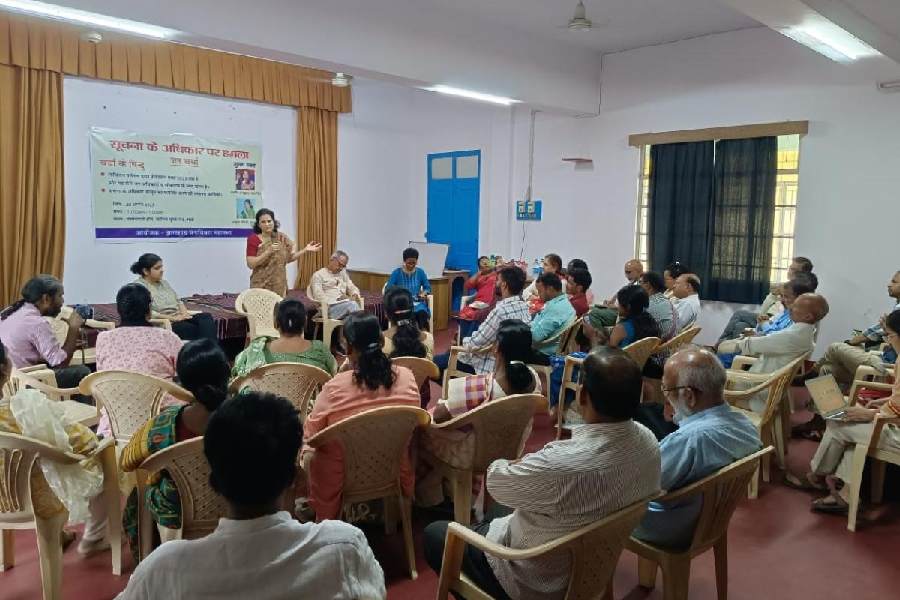The Digital Personal Data Protection Act 2023 is another weapon used by the Narendra Modi government to destroy democracy and there is a need for the masses to make a clear decision to oust the BJP government in the 2024 elections, felt the speakers at a public discussion on the act in Ranchi on Monday.
The event hosted by Jharkhand Janadhikar Mahasabha — a coalition of rights outfits — saw Anjali Bhardwaj and Amrita Johri from the National Campaign for People’s Right to Information (NCPRI) speaking on the act that was passed during the recent monsoon session of Parliament.
Bhardwaj and Johri have been fighting for the right to information and government accountability for years informing the masses about the impact of the act.
“The Digital Personal Data Protection Act was passed in Parliament without listening to Opposition MPs and the people. The draft of this bill was not even shown to the standing committee in the beginning, only the BJP minister of the standing committee signed the bill and finally, the bill was passed in Parliament in a few minutes without any discussion. This law is going to have a long-term impact on our public rights and democratic rights. Through this law, the government has amended Section 8 of the Right to Information Act. Now much information related to government accountability will be out of the purview of the Right to Information Act,” Bhardwaj said.
“The Modi government is abolishing the Right to Information Act in a dictatorial manner. After May 2014, the Modi government did not appoint a central Lokayukta until the court directed against it. By amending the RTI in 2019, the Modi government took over the tenure, pension and salary of the central as well as the state information commissioner. It was a means to keep their pressure over such bodies,” Johri said.
According to the speakers, the Modi government is bringing such policies and laws to end the people's right to question.
“Under the Data Protection Act 2023, now any person or group of persons or organisation, who do fact-finding survey to understand public issues, prepare a list of victims, match voter list etc., all will be called data fiduciary and the government can legally stop them and target them in various ways. There is a conspiracy to control social media through the Data Protection Act so that the ground truth is not revealed objectively,” said Elina Horo, a member of the Mahasabha who attended the public meeting.
“Through this law, the central government will be able to establish a system of comprehensive digital surveillance. They will have control over every digital information and its related use, companies, government agencies etc. Nothing will remain in the hands of the state governments. Under the act, a data protection board will be established, which will be under the complete control of the central government — the appointment and functioning of this board will be decided by the government,” Horo further said.
“The speakers and the members felt that there was a need to take a clear decision and plan a strategy to oust the present BJP government in the 2024 general election to stop such attacks on democracy,” said Elina Horo.










